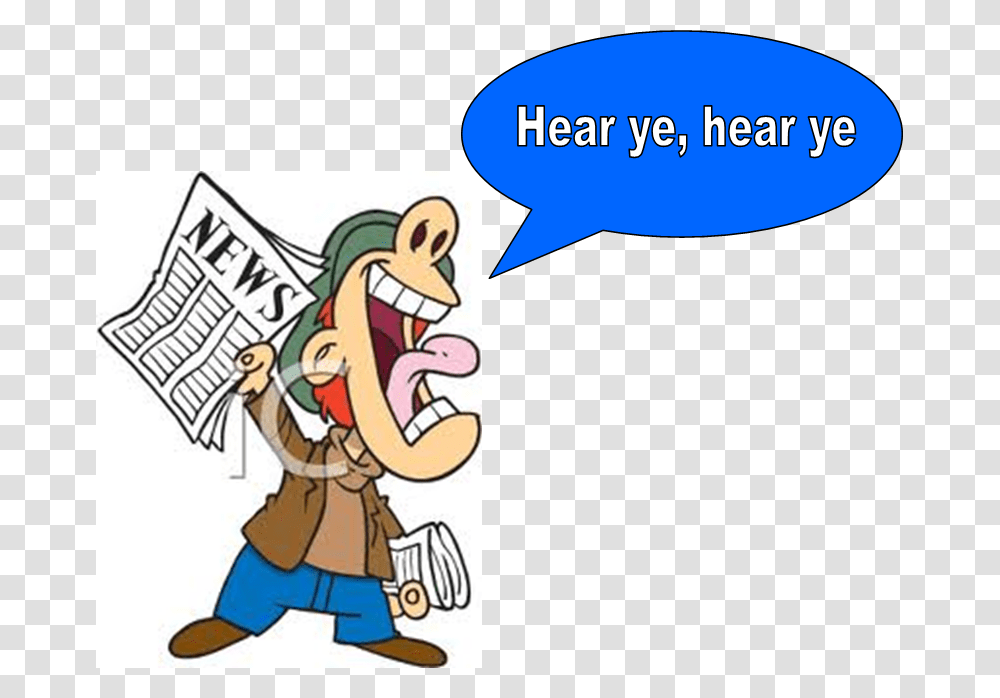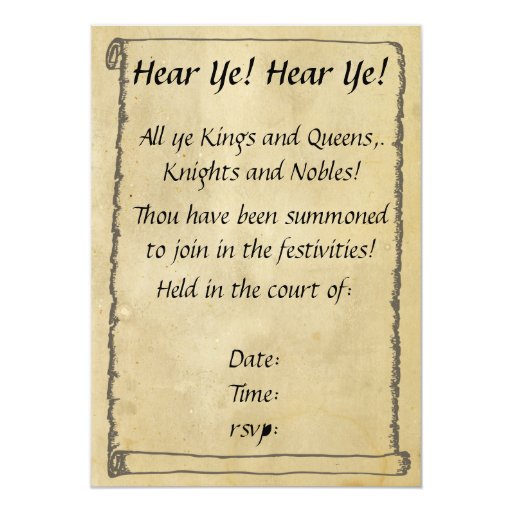Do you know the phrase that has echoed through the halls of power, the bustling streets of old, and even the hallowed pages of legal documents for centuries? "Hear ye, hear ye," a phrase that once signaled attention and has evolved into a powerful symbol of announcements, pronouncements, and even, occasionally, a call to order.
The origins of this evocative expression are steeped in history, tracing their roots back to the very heart of governance: the UK Parliament. Both Wikipedia and phrases.org.uk concur on this point, establishing the phrase's parliamentary lineage. It wasn't just a decorative flourish; it was, and in some contexts still is, a functional imperative. Originally, "Hear ye!" was a directive, a way to focus the attention of those present on a particular speaker or pronouncement. The Oxford English Dictionary confirms its transition into a more generalized form of cheering within the House of Commons, its meaning and impact shaped by the intonation of the speaker and the context of its utterance. It is the regular form of cheering.
At its core, "Hear ye" is a contraction. It's short for "Hear him!" a call to pay attention to the words of a specific individual. The phrase's age is remarkable. It predates even the entry in Pearson's Political Dictionary, published in 1792. Even today, in the British Parliament, the echoes of this historic phrase can still be heard.
- Route 90 Bridge Traffic Updates Live Views News
- Discover Marble Arch Hotels Your London Stay Starts Here
The construction of the phrase itself offers some interesting insights. It's essential to understand that this isn't a misunderstanding of "ye," as might be assumed by some. In older English, the letter "y" was frequently used as a substitute for the Old English letter "" (called a thorn), which represented the "th" sound. So, in phrases like "ye olde shoppe," the "ye" does indeed mean "the." However, this doesn't hold true for "Hear ye, hear ye." In this context, "ye" functions as the plural form of "you." It's a direct address to the audience, the listeners, imploring them to lend their ears to what is about to be said.
The phrase's usage extends beyond the confines of the formal. It finds expression in the context of town criers, the historical communicators of towns and villages. These individuals, equipped with a bell or other auditory cues, were the primary source of information for communities where literacy was not widespread. The cry "Hear ye, hear ye!" would be followed by important announcements such as local bylaws, market days, or commercial advertisements. The proclamation itself was often delivered in a clear, loud voice, ensuring that all could hear and understand the message.
The French origins of the phrase add another layer of complexity. The word "Oyez," the French equivalent of "Hear ye," meaning "hear ye," is a derivative of the old French verb "oyer". This word signaled the opening of legal proceedings or public notices, and is still used by the Supreme Court of the United States and the Common Crier of the City of London. It carries with it the weight of legal authority and the solemnity of the court. The echoes of "Hear ye" therefore resonate far beyond a simple call for attention. They are imbued with history, law, and a sense of civic duty.
When we examine the usage of "hear" versus "listen," we enter a realm of nuance. "Hear" is often a passive process, simply receiving sound. "Listen" implies a deliberate act of paying attention. As in, "Many people say, listen to me." Similarly, to "hear of" something suggests awareness of its existence, whereas to "hear about" something means to be informed about it. So, we can ask, "Have you heard of John Key?" or inquire "Have you heard about John Key?"
The phrase has transcended its origins to become a versatile tool in communication. It may be used as a synonym for phrases like "mark my words" or "read my lips," as used in instances such as the Supreme Court. The phrase is also utilized as a device to preface an important announcement. Synonyms for hear ye can also include pay attention. It is often a prelude to key information. For example, "Hear ye, hear ye! All persons are commanded to keep silent."
In the realm of entertainment, the phrase has also made its mark. From historical dramas to pirate-themed adventures, "Hear ye, hear ye" has found its way into the dialogue, helping to create a sense of authenticity. The gruff voice and rolled "r"s, frequently used in pirate imitations, owe their popularity to Robert Newton, the actor who played Long John Silver in the first sound production of "Treasure Island."
The phrase also finds itself within the context of legal proceedings, where its use is strictly regulated to maintain order and focus. This is particularly true in the United States, where the call for attention is used to maintain order in the courtroom. The House of Representatives exhibits articles of impeachment to the senate of the United States. This is done under the command of the presiding officer.
| Keyword | Description |
|---|---|
| Hear Ye | An archaic interjection used to introduce a public announcement. |
| Origins | UK Parliament, Town Criers, French "Oyez" |
| Meaning | "Hear ye" means "Listen up!", or "Pay attention." |
| Usage | Announcements, Legal Proceedings, Historical Context |
| Pronunciation | As it sounds |
| Synonyms | Mark my words, Read my lips, Pay attention. |
| Related terms | Oyez, Town Criers, Proclamation |
The phrase "hear ye" is more than just a collection of words; it is a portal to the past. From the hallowed halls of Parliament to the bustling marketplaces of old, from the mouths of town criers to the legal pronouncements of courts, this iconic expression holds a special place. It is a testament to the enduring power of language to capture attention, to announce important information, and to transport us across time. Its use continues today, even in an age of immediate access to information, for it serves as a reminder of the history and traditions that have shaped the world we live in.



Detail Author:
- Name : Prof. Nils McLaughlin DDS
- Username : arlo38
- Email : dhauck@gmail.com
- Birthdate : 1995-08-23
- Address : 3953 Michaela Shoal Kunzehaven, SC 51257-2805
- Phone : +1.484.764.5330
- Company : Wehner and Sons
- Job : Petroleum Engineer
- Bio : Voluptatum natus magnam deserunt alias quas. Amet ea cupiditate laudantium rerum consequatur quis neque ut.
Socials
twitter:
- url : https://twitter.com/jermain_corwin
- username : jermain_corwin
- bio : Optio cupiditate ullam totam est. Fugit animi dignissimos dolores aut. Possimus hic qui vel error. Doloremque numquam id dolor doloribus mollitia.
- followers : 5151
- following : 2943
linkedin:
- url : https://linkedin.com/in/jermain.corwin
- username : jermain.corwin
- bio : Fuga commodi voluptas rerum ratione.
- followers : 3539
- following : 1648